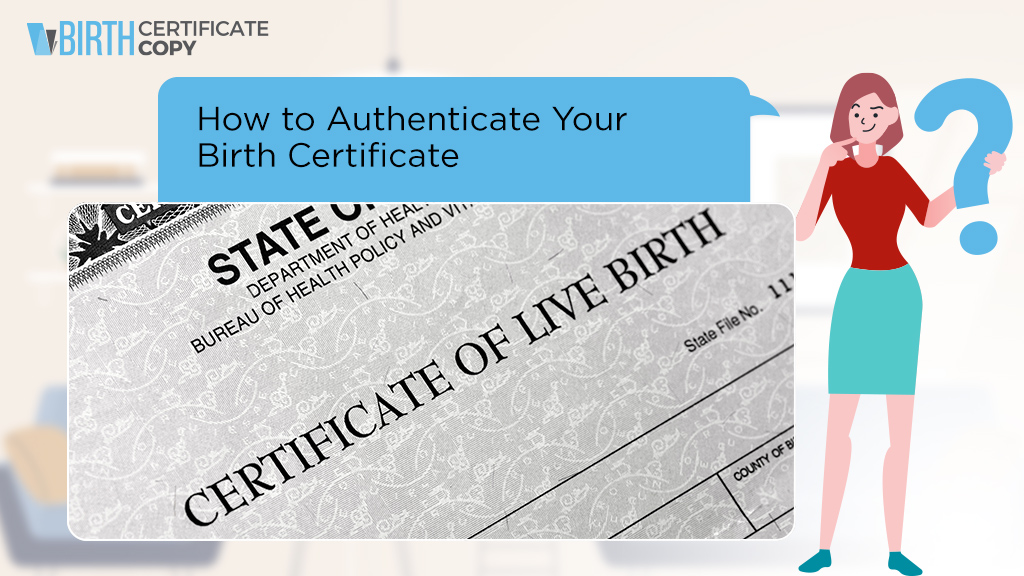Your birth certificate is an essential document that serves as proof of your identity and citizenship. Whether you need it for official purposes, such as obtaining a passport or enrolling your child in a new school, it is crucial to ensure that your birth certificate is certified and the child’s birth certificate. In this article, we will explore what it means for a birth certificate to be certified, why certification is important, and how to obtain a certified copy of your birth certificate.
What Does It Mean for a Birth Certificate to be Certified?
A certified birth certificate is a copy of your original birth certificate that has been authenticated by the issuing authority. Certification indicates that the copy is a true and accurate representation of the original document. It includes an official seal or stamp, along with the signature of the registrar or other authorized personnel, confirming its authenticity.
Importance of a Certified Birth Certificate
A certified birth certificate holds significant importance in various situations. It serves as primary evidence of your identity and citizenship, enabling you to obtain crucial documents such as a passport, driver’s license, or Social Security card. Additionally, it may be required when applying for government benefits, obtaining a marriage license, or enrolling your child in a new school.
Obtaining a Certified Copy of Your Birth Certificate
The process of obtaining a certified copy of your birth certificate may vary depending on your location. Generally, you can obtain a certified copy through the Vital Records office in the state where you were born. Here’s a general overview of the steps involved:
- Determine the Issuing Authority: Identify the Vital Records office responsible for issuing birth certificates in your birth state. You can usually find this information on the official website of the state government or the Vital Records office.
- Gather Necessary Documents: Prepare the required documents for obtaining a certified copy of your birth certificate. These may include a valid form of identification, proof of your relationship to the person on the birth certificate (if applicable), and any additional documentation specified by the issuing authority.
- Complete the Application: Fill out the birth certificate application form provided by the Vital Records office. Provide accurate information, including your full name, date of birth, place of birth, and the names of your parents. Double-check the application for any errors before submitting it.
- Pay the Fee: Depending on the state and the type of service requested, there may be a fee associated with obtaining a certified copy of your birth certificate. The fee covers administrative costs, processing, and mailing. Payment methods may vary but commonly include cash, check, or credit card.
- Submit the Application: Submit the completed application, along with the necessary documents and the required fee, to the Vital Records office. You may choose to mail the application or submit it in person if permitted by the issuing authority.
- Processing and Delivery Time: The processing time for obtaining a certified birth certificate copy can vary. It may take several weeks to receive the document by mail. Some Vital Records offices also offer expedited services for an additional fee if you require the certificate urgently.
- Some states, such as Texas, offer informational birth certificates in the form of heirloom copies that are only meant to be keepsakes.
Ordering a Birth Certificate Online
Many states now provide online services that allow you to order a birth certificate copy online. This method offers convenience and can expedite the processing time. Visit the official website of the Vital Records office in your birth state and follow the instructions to order a birth certificate online. Be prepared to provide the necessary information and pay the required fee electronically.
Having a certified birth certificate is essential for proving your identity and citizenship in various situations. Whether you need it for obtaining a passport, enrolling your child in a new school, or other official purposes, a certified copy ensures its authenticity and validity. To obtain a certified copy, contact the Vital Records office in the state where you were born or utilize online services if available. By following the necessary steps and providing the required documentation, you can obtain a certified birth certificate copy to meet your legal and personal needs.

